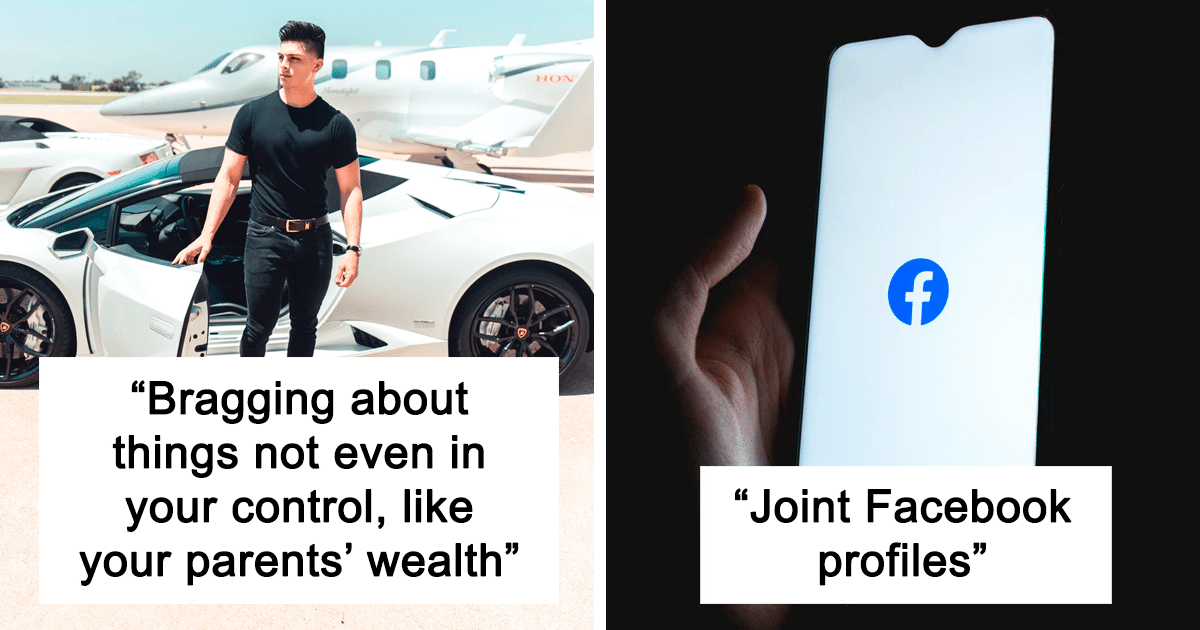It is one of the most important qualities to have. It is a part of my personal hierarchy of values, along with fairness, moral courage, having a good work ethic, and loving animals. Confidence does not grow on trees. You can’t become confident in a single day. It takes time and dedication to move away from a mentality of fear.
There are many ways in which security can manifest itself, from humble-bragging to putting others down. There are signs that someone might be very vulnerable, no matter how much confidence you have. Let us know how you can determine if someone is in need of a helping hand by reading through the signs below and upvoting the ones you agree with.
Silva Neves, a UK-based psychotherapist, answered a few questions that I had about being vulnerable, how these are expressed through specific behaviors, and why some people lash out at others because of them. If you want to learn how to feel secure and confident in yourself with the help of self-compassion, scroll down for an interview with him.
1.

Bragging about things that are not in your control.
2.

Those are some of the quotes that people post on Facebook. “Don’t worry about those who talk behind your back, they’re behind you for a reason”
And they tag themselves into any and every place. Then when someone asks if they’re ok they reply with: “Don’t ask hun xoxox.”
Basically. I am trying to say that people who live their lives through social media are active.
3.

Random people’s appearance being insulted.
I was told by Silva that people are sending signals with their behavior. “Insecurity carries the message: ‘I’m not enough, or even ‘I’m worthless.’ These are painful beliefs to have about ourselves but many do have those underlying beliefs,” he said.
It can manifest in a variety of ways and sometimes even polar opposite behaviors according to the expert. “Insecurity can manifest either by making themselves invisible (If I’m not seen, nobody will notice my flaws) or the opposite, by what we call ‘bragging’: shouting at everybody about how wonderful they are. This is usually to try to persuade to themselves that they are good enough.”
Some people put down others to make themselves feel better. “Another way to counter the ‘I’m not enough’ is by pushing others down, sabotaging other people’s success, or attacking people as a way to feel powerful so that they can control their inner pain of ‘I’m not enough’. All of these strategies don’t work because what they do is either internalize or externalize the belief ‘I’m not enough’ rather than changing it,” Silva highlighted the fact that we must change this belief instead of attempting to cope in the ways he mentioned.
4.

I don’t believe you if you talk about how good you are in bed and how many women you’ve slept with.
5.

One-upping people constantly in conversations.
6.

Joint Facebook profiles
“The key to becoming more secure is to change the underlying belief ‘I’m not enough’ to ‘I’m enough,'” the psychotherapist explained. “The way to do it is with self-compassion.”
As we grow up, Silva says we can learn the ‘I’m not enough’ belief in childhood. We can change this underlying belief as we mature.
“Perhaps parents didn’t praise children enough, or they paid more attention to the mistakes rather than the successes. As an adult now, people can give themselves a hug once in a while and tell themselves, gently: ‘you’re doing good,’ ‘well done,’ ‘congratulations.’ Eventually, the brain will listen and slowly change the message ‘I’m not enough’ to ‘I’m enough,'” he noted.
“Rather than shouting your praise at other people, it is about speaking to yourself in a loving way. When people are genuinely aware of their successes, they can become genuinely more confident without the need to impose their power onto others.”
7.

Women are like soldiers. A friend offered me a place to stay after I left an abusive relationship. If she wasn’t there, I had to leave. I didn’t have a hotel room to deal with that.
8.

I think I degrade myself just to hear others deny it.
Though many of us think of it as something that should be avoided, it does have a place and time. During job interviews. Brilliance can be a very powerful tool in helping you land the job of your dreams when done from a position of confidence.
I talked about this with a career coach. In his interview, he said that not doing enough to highlight our accomplishments is the number one mistake we tend to make when applying for a new job.
“They humble themselves when they need to be boasting. If you understand why the work that you were doing was important and how it impacts your org (project) then you should be explaining that to the interviewer without holding back. How did you go above and beyond to make sure things worked? What creative ways did you come up with?” Jermaine noted that we should be showing off instead of being overly humble.
9.

When you tell someone something positive or nice that happened to you, for example, that you purchased a new TV and that you start to notice that the other person always tries to poke holes in your cloud of happiness by saying you instead should have waited, the TV is too big, it consumes to much power, that brand is s***ty and so on. But they do this with everything you share with them that is somewhat positive to your life.
10.

People who want to see the worst in others so they can feel better about themselves feel the need to judge everyone in a negative light. It shows how unhappy they are.
11.

I used to be very paranoid, so I’ll go from there. Lying about something makes it seem cool. It’s a sign that they don’t like who they are now.
Your body language and tone of voice can be used to show others that you are secure. Any situation can be made or broken by these two tools. The opposite can reduce our achievements, talents, and skills to practically zero in some hiring managers’ eyes, so we should always want to be perceived as confident and capable.
“If your body language or tone says otherwise, you destroy the perception of your skills. Once that’s gone so are your chances of landing the job,” Jermaine said.
12.

Being mean to people.
13.

Automatically assuming negative intent.
eg:
Your friend didn’t pick up your call?
“F her, she’s trying to avoid me. I don’t care about her anyway.”
14.

When people insist on using a tracking app on their phone.
It’s one thing to have it and use it in case of an emergency, but it’s also one thing to use it while out with your friends to make sure he’s actually at work.
“You can teach someone to be a better coder but it’s near impossible to teach them how to be a better person. Recruiters will always value personality first, but technical skills are a very close second,” the career coach said.
“Hiring managers keep that in mind and try to make sure candidates they like can perform competently. Different things contribute to this bar that isn’t based on the candidate but the organization’s internal ability to support and develop someone. Once those two elements are present a hire will happen.”









